Tzu Chi care recipient Png Wui Choong has a one-foot-long surgical scar on his left leg. When the volunteers first met him, he used hand gestures to show the number ‘6’, leaving them guessing whether he meant six pieces of nails, or it happened in June (the sixth month of the year), or he fell from the sixth floor.
On November 18, 2020, Tzu Chi volunteers paid their maiden visit to Png Wui Choong’s family, who live in a rented unit on the upper floor of a shop house in Cheng, Malacca. The one-bedroom unit has two toilets but no kitchen or bathroom. The only window was shut and covered with cardboards to block out the heat. The structure of the unit, coupled with poor ventilation, make the space non-conducive for living.
Without a proper kitchen, utensils and food seasonings were scattered all over the floor. Not only was this unhygienic, it was also messy. The room had two mattresses, a storage box and a fan; the randomly placed items made the room look untidy. After a fall, which left Wui Choong with a broken leg a few months ago, he was unable to walk normally; climbing up and down the stairs became impossible tasks!
As the volunteers felt sorry to see the family’s living conditions, they decided to help them find a better place to stay nearby. Concurrently, volunteers Ng Ton Leong and Lim Siew Choo also planned to help the family clean up their living space first.
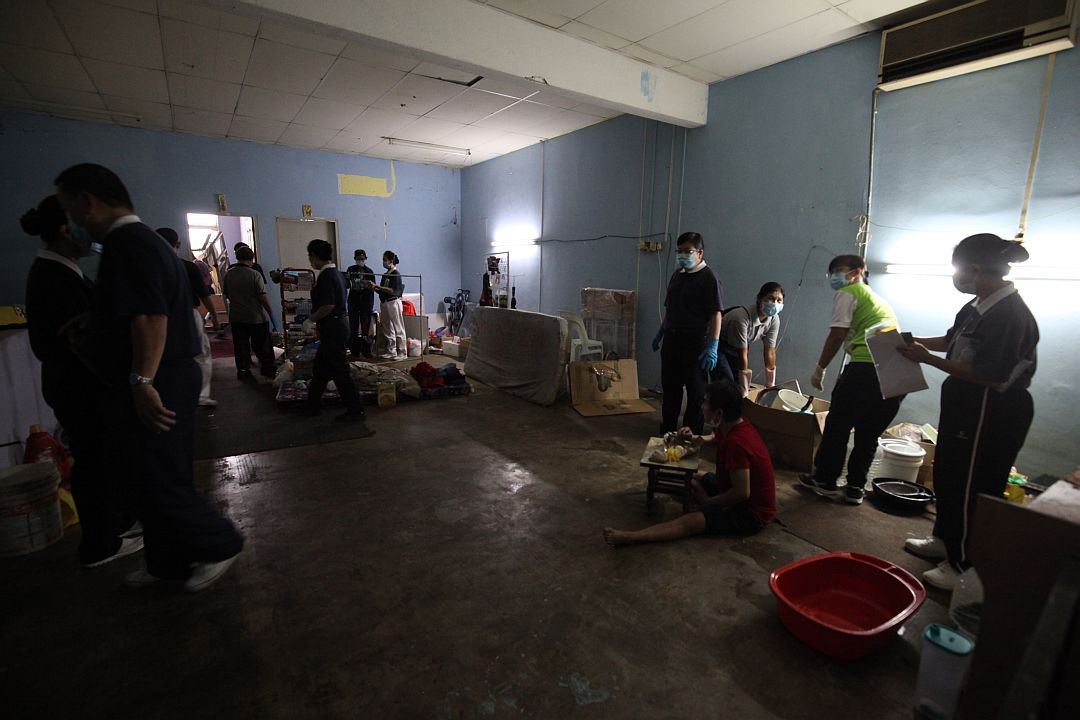
Gratitude and respect in action
On November 28 morning, 16 volunteers arrived at Wui Choong’s home. The main coordinator, Ten Chee Hean, briefed the team on things to take note of during cleaning. A truck was also used to send some second-hand furniture to the family.
Having noticed a lack of water supply at Wui Choong’s home, volunteers carried a large bucket of water from the lower floor a day earlier, for dishwashing purpose. As the ceiling light was not working, they also installed two fluorescent tubes on the wall. However, the lighting was still too dim to light up the entire space. After discussing with the family, a decision was made to open the window in the room to allow for natural light and fresh air into the home. When everything was ready, volunteers began the cleaning—washing the cookware, removing the cobwebs on the ceilings, wiping the fans, radio and other electrical appliances, and so on. The recyclables were also sorted out accordingly and brought onto the truck to be sent to the recycling centre.
Working in a stuffy and dim space while having their masks on the whole time was a true test of the volunteers’ endurance. Nevertheless, everyone persevered to complete the mission.
Volunteers would also seek the couple’s approval before rearranging or discarding any items. The couple, who are deaf, would discuss with each other using sign language, while Siew Choo relayed the volunteers’ messages using a blackboard and a chalk. After a few rounds of communication, Siew Choo learnt to be more mindful of her words so as not to offend the couple’s feelings.
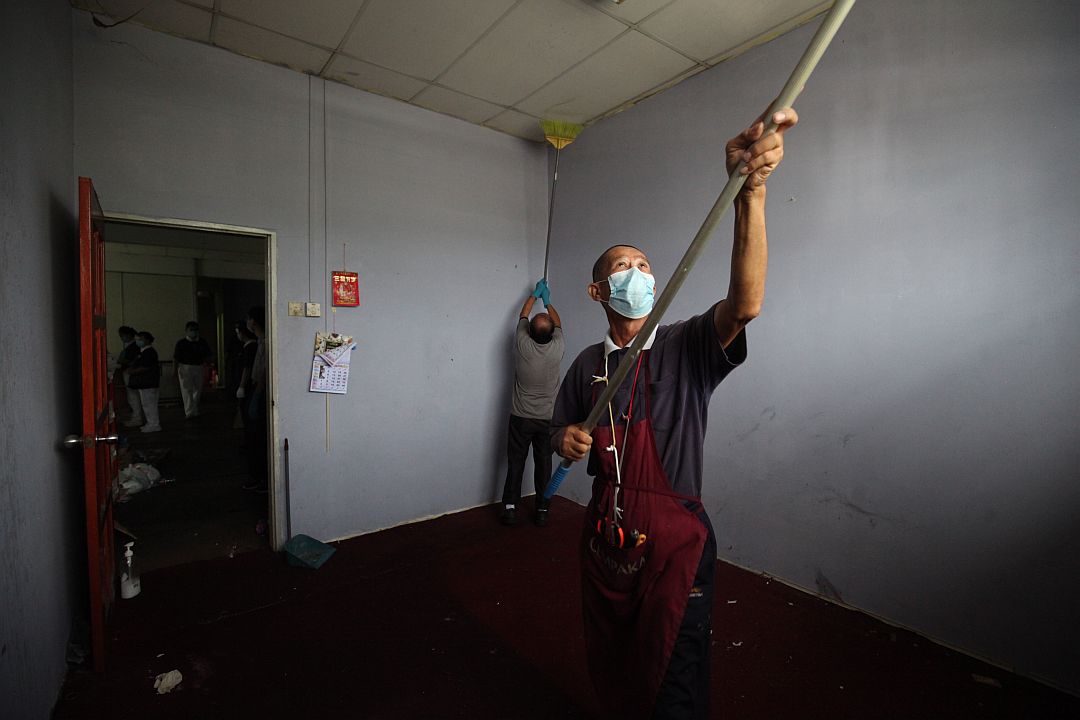
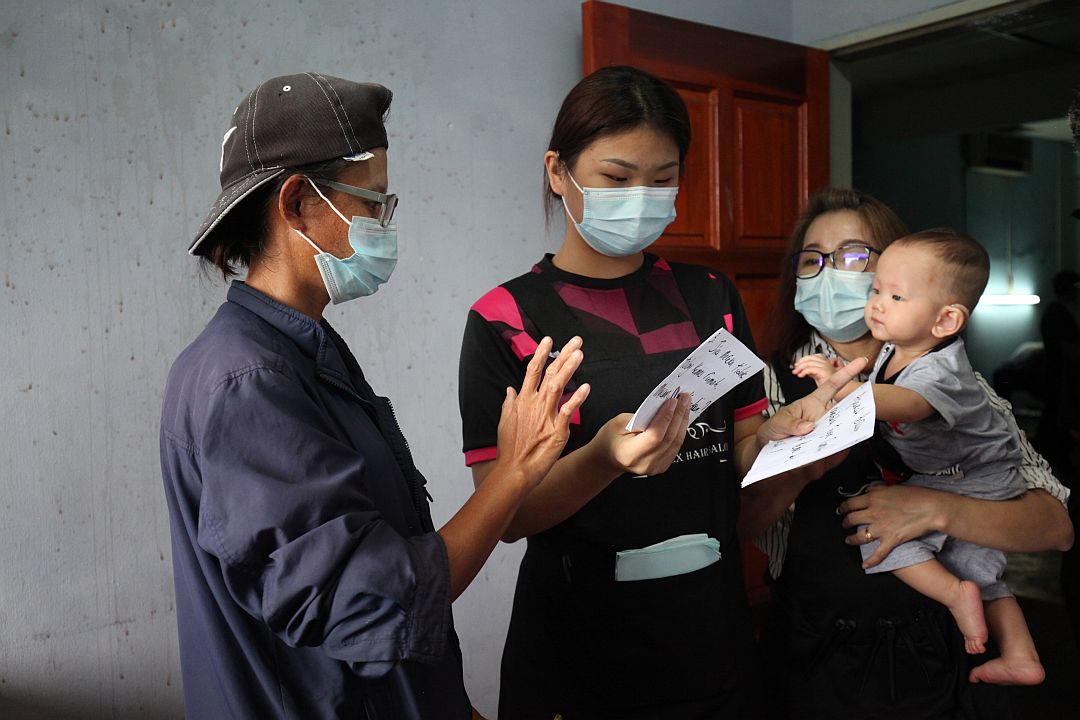
When the space was finally clean and tidy, they discussed arrangements for the bed and furniture. Volunteers then moved the heavy furniture to the upper floor. The room looked much more comfortable and cosier with the bed in place. Wui Choong could not contain his joy and gave the volunteers a thumbs up, while his wife, Chua Siew Moi, smiled with satisfaction.
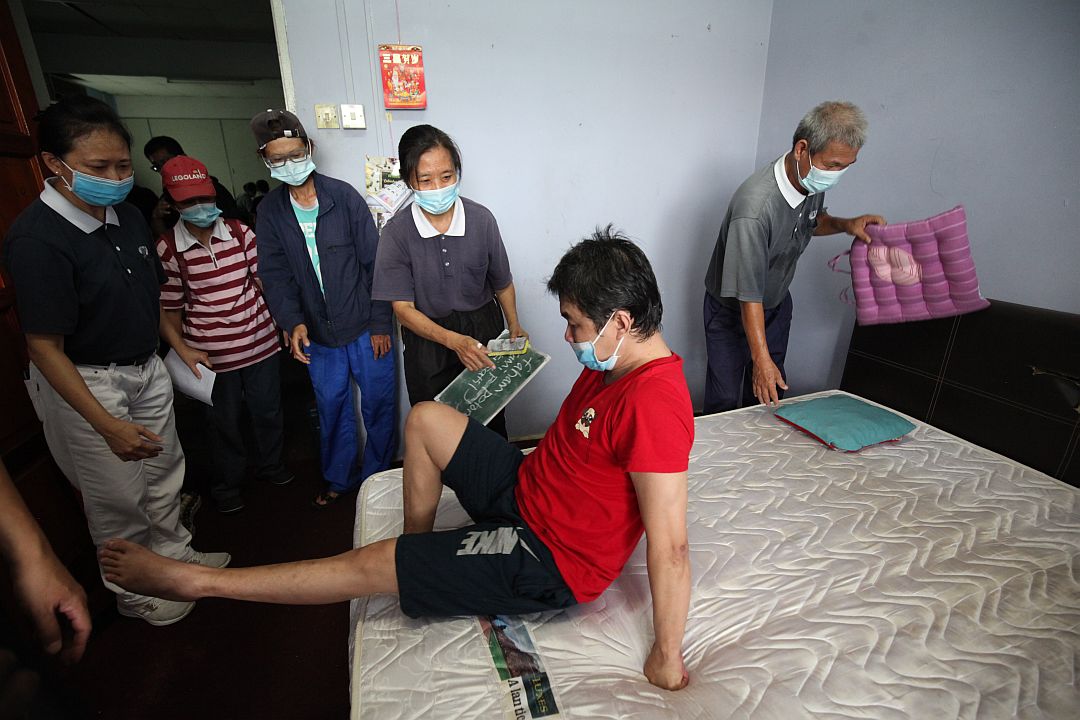
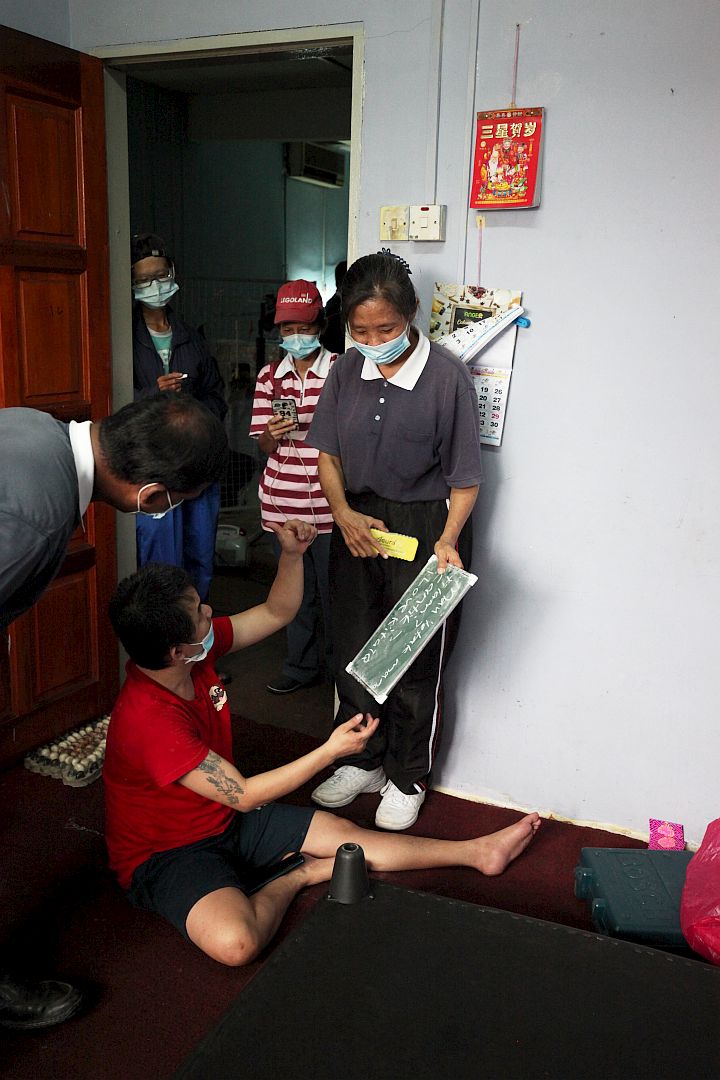
Extending a hand with empathy
Chan Yok Mooi, who lives nearby and runs a hair salon, visited the couple to show her concern after Siew Moi gave birth. It was then that she realized their living environment was messy. Hence, when she saw Tzu Chi volunteers promoting the Covid-19 relief programme, she approached them to report on the couple’s predicament.
She said, “Their child is also deaf. The hearing aid, which costs about RM7,500, was sponsored by some kind-hearted customers and the supplier.” Yok Mooi takes care of the couple’s 11-month-old baby like a nanny. She would bring the baby to the general hospital for routine check-ups twice a month, and to Seremban Hospital for hearing tests as required. She further explained, “Frequent follow-ups and a surgery in the future will effectively improve the child’s hearing ability.”
Yok Mooi’s youngest daughter is also having hearing problem. As she was inexperienced in the past, she was unable to deal with her daughter’s needs in a timely manner; she was filled with remorse as a result. So, when she saw the couple’s plight, she was empathetic and offered them help. She also brought them electrical appliances, crutch, baby supplies, and so on. She praised the volunteers for their efforts and was relieved that the family finally has a clean home.
Priceless reward of joy
Volunteer Ng Chee Yong, who had met the couple earlier during recycling activity, felt it was meaningful to spend his weekend lending a helping hand to others. He helped with the cleaning of the cobwebs and moving the furniture from the truck to the upper floor.
Despite working for a few hours, he did not feel tired at all. His only hope was to give the family a comfortable living environment. He believes that one who helps others will derive immense joy that money cannot buy. He was deeply touched to see Wui Choong repeatedly expressing his gratitude to the volunteers via hand gestures.
After the cleaning, everyone enjoyed some refreshments together. While singing the song, “One Family”, Siew Moi embraced her husband with tears in her eyes. It was a heart-warming sight.
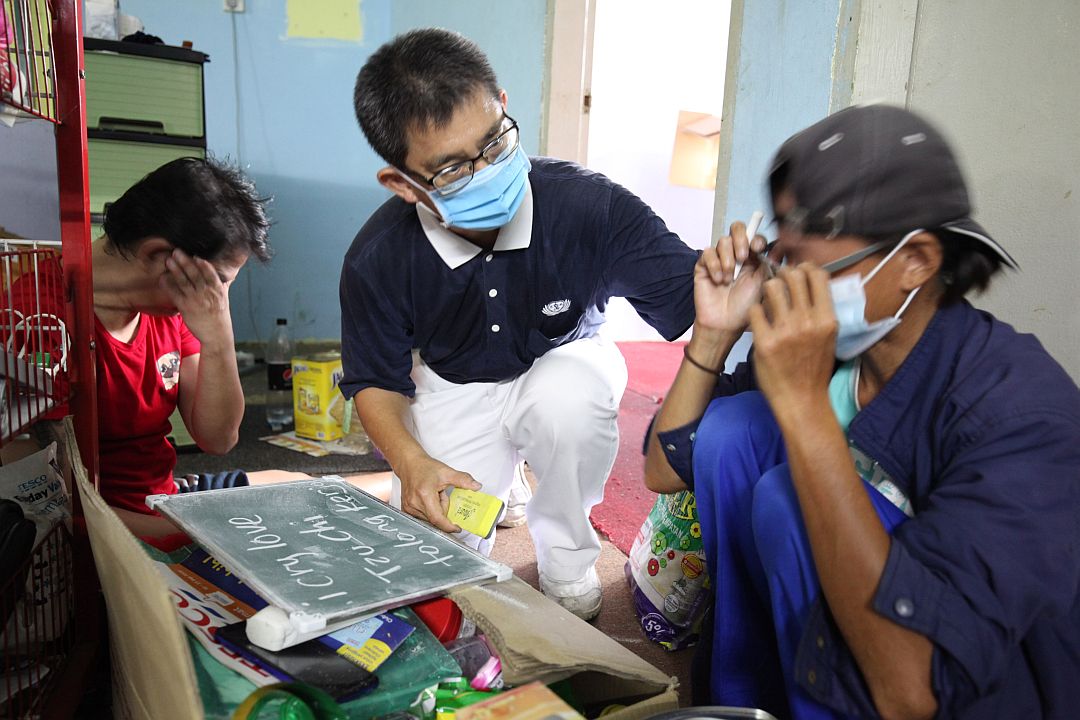
As Wui Choong is unable to work for the moment due to his leg injury, the family relies on his wife’s meagre income. Other than providing them with subsidies for daily necessities and care, the volunteers also visited the Malacca Deaf Association to find out how the Association can assist Wui Choong in getting a job, as well as obtain some information relating to medical care and social welfare. The chairman of the Association and a few staff soon paid a visit to Wui Choong and helped register him as a member of the Association, so that they could offer further assistance in job search, children’s education and welfare. They are also willing to provide free translation services to bridge the communication gap between the volunteers and the couple, thereby working together to help the disadvantaged families.





